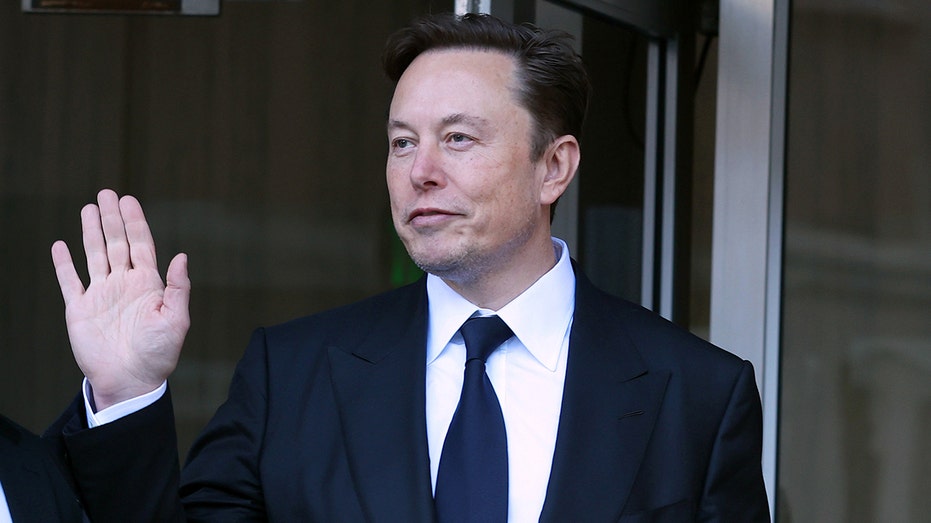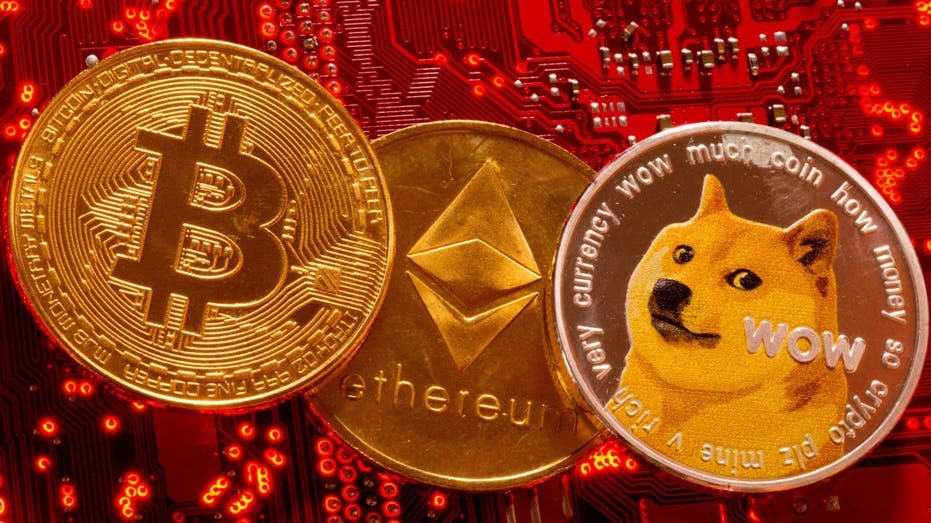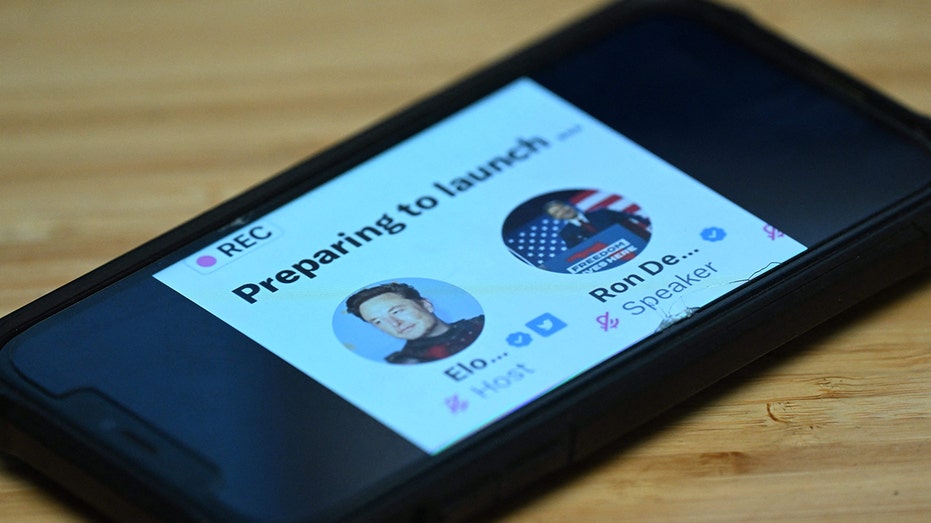'Crypto Twitter' heats up ahead of the 2024 election
Tweets about cryptocurrency multiplied six times between 2020 and 2021
Crypto markets are holding steady and stable: Charles Hoskinson
Input Output Global CEO Charles Hoskinson shares what's next for cryptocurrency markets after the collapse of FTX on 'Mornings with Maria.'
It’s no secret the biggest conversations in crypto are happening on Twitter, and as the $1 trillion digital asset market is set to become a key topic in the 2024 Presidential election, "Crypto Twitter" is going gangbusters.
"Crypto Twitter" is a term used to refer to the community of people who use the app to share news, offer insight and discuss and debate industry developments.
Twitter’s crypto crowd has steadily grown since the creation of Bitcoin in 2009 but has exploded in the wake of the COVID-19 pandemic with the rise of the retail trading movement.
REPUBLICANS TURN UP THE HEAT ON BIDEN'S CRYPTO REGULATION: ‘DRIVING INNOVATORS OUT OF AMERICA’
According to internal Twitter data released before the company went private, tweets about cryptocurrency multiplied six times between 2020 and 2021, and there were over 1 billion tweets about crypto between 2020 and 2022.
The introduction of Twitter Spaces, an audio-only feature that allows users to listen and engage in live discussions, helped expand the crypto dialogue and has become a popular source for up-to-the-minute industry news and insight from some of the greatest minds in the field.
Spaces is becoming more widely used by YouTubers and other content creators because it gives them the ability to engage directly with their audience.

Tesla CEO Elon Musk leaves the Phillip Burton Federal Building Jan. 24, 2023, in San Francisco. (Justin Sullivan/Getty Images / Getty Images)
This week, popular Spaces host Mario Nawfal launched a daily crypto-focused Spaces show with crypto content creators Ran Neuner, founder of YouTube channel Crypto Banter, and Scott Melker, host of the podcast "The Wolf of All Streets".
CHATGPT IS NOW BEING USED TO SELL YOU CRYPTO
The trio, who collectively have over 2 million followers, is looking to establish the Spaces, dubbed "Crypto Town Hall", as a go-to source of news and value for Crypto Twitter and those new to the industry who are crypto-curious. Set in the format of a roundtable discussion, Nawfal says he wants to encourage friendly yet rigorous debate among speakers on various industry-related topics. The show’s pilot, which aired on May 31st, amassed nearly 300,000 listeners and ran for 90 minutes before a technical glitch ended the Space early.
"When we’re on our own YouTube channels, we are the content and our viewers learn from us," Neuner told FOX Business. "But on Twitter Spaces, the audience becomes the focus, and we’re the ones learning from some of the brightest minds in the industry."
The open-mic format that Spaces offers has simultaneously initiated the rise of citizen journalism, a term used to describe individuals who are not professional journalists who report and disseminate news via public platforms. Citizen journalism allows for the average person to have a voice and a platform, sometimes garnering hundreds of thousands of followers by establishing themselves as trusted sources of news and information.
Nawfal himself has helped raise the profile of citizen journalism through the success of The Roundtable Show, a daily show he hosts on Twitter Spaces where guest speakers debate a range of controversial topics.
"In the midst of the FTX collapse, Twitter Spaces gave birth to citizen journalism as the news and events broke live on a 24/7 uncensored show," said Nawfal. "Since then, major events including the collapse of Silicon Valley Bank and the release of the Twitter Files took place on Twitter Spaces, offering an alternative to existing media outlets."

Representations of cryptocurrencies bitcoin, Ethereum and DogeCoin are placed on a PC motherboard in this June 29, 2021, illustration. (REUTERS/Dado Ruvic/File Photo / Reuters Photos)
Shortly after Elon Musk shelled out $44 billion for the company in October, he reiterated his goal of making Twitter a place where free speech is reinforced and citizen journalism thrives.
FOX BUSINESS: LIVE CRYPTO PRICES
"As Twitter pursues the goal of elevating citizen journalism, media elite will try everything to stop that from happening," Musk tweeted. "Mainstream media will still thrive, but increased competition from citizens will cause them to be more accurate, as their oligopoly on information is disrupted."
The challenge for Musk will be how to vet quality information and prevent misinformation, which many see as one of the greatest threats to the reputation and future of the platform.
"While I am skeptical of Twitter being able to surface better quality information over lousy information down the road, I have also seen that it’s not always wise to bet against Elon Musk," said Paul Glader, a journalism professor at The King’s College in New York City. "Right now, it doesn’t seem that Twitter has many viable competitors for the kind of news and information micro-blogging and posting that made the platform popular in the first place."
Last week, Musk tested his vision of making Twitter a "digital town square" when Florida Gov. Ron DeSantis made history by becoming the first presidential candidate to launch a campaign via social media on Twitter Spaces. Before technical glitches forced Musk to restart the Space, nearly 600,000 users tuned in to hear DeSantis in a town hall-type discussion with Musk and tech entrepreneur David Sacks.

This illustration photo shows a live Twitter talk between Elon Musk and Ron DeSantis displayed on a phone May 24, 2023, n Bethesda, Md. (Pedro Ugarte/AFP via Getty Images / Getty Images)
Sacks referenced Crypto Twitter as a "huge constituency" that will be "heartened to hear" DeSantis's pro-crypto views, which include condemning the federal government's monopolistic control over the industry.
Other presidential candidates, both Republican and Democrat, have come out in favor of cryptocurrency, proving that pro-crypto voters will make up an important demographic in the 2024 election.





















